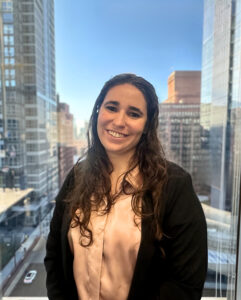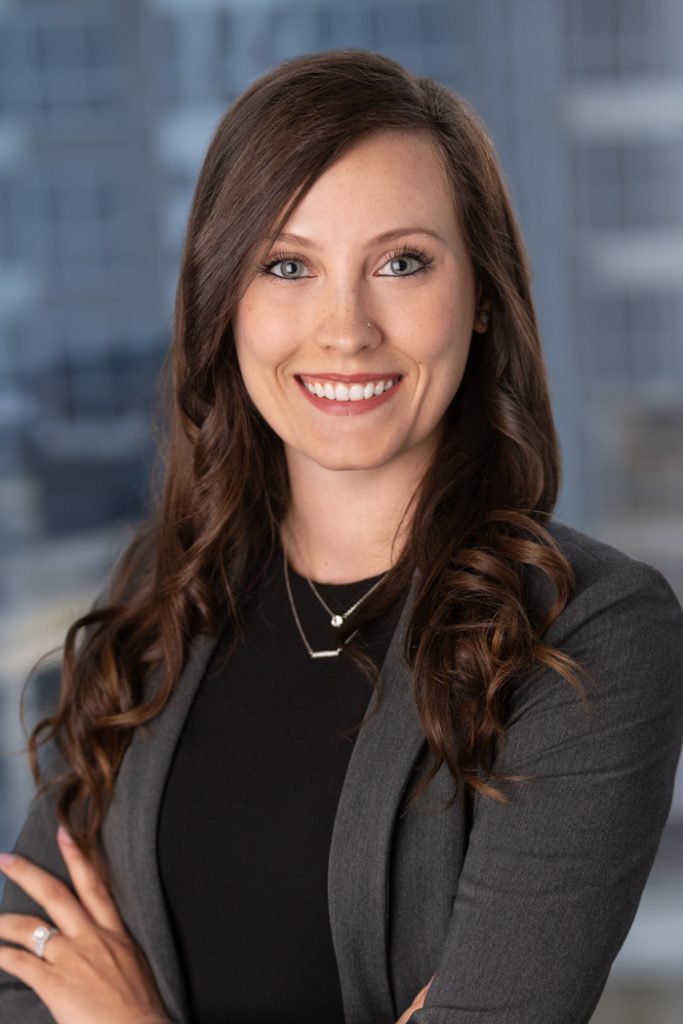Community Access to Justice: Ten Years of the North Suburban Legal Aid Clinic
The North Suburban Legal Aid Clinic works to provide high-quality, equitable legal services to individuals in need. We’re proud to work with NSLAC and Wallace Miller partner David A. Neiman to support the organization’s tenth anniversary event in May 2025.
NSLAC’s 10th Anniversary
Celebrating the tenth anniversary of its founding, the North Suburban Legal Aid Clinic (NSLAC) will be holding a fundraiser on May 3rd, 2025 in Libertyville, Illinois. The event is aimed at local leaders, the legal community in Chicago, Lake County, and Cook County’s northern suburbs, and other supporters of NSLAC and its goals. Funds will go towards promoting free legal services for community members who need them most.
Wallace Miller will be donating to the event to celebrate the organization’s exceptional work and help raise funds for their advocacy for years to come. Find out more about the event at their website.
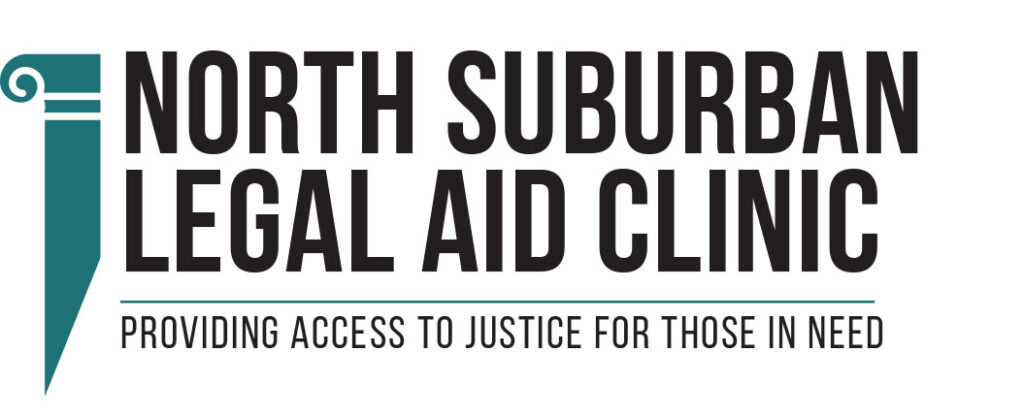
About the North Suburban Legal Aid Clinic
The North Suburban Legal Aid Clinic (NSLAC) provides free legal help to members of its community who would otherwise be unable to afford them. Working in Lake County and the north suburbs of Cook County, their goal is to provide accessible, high-quality, equitable representation and connect individuals to meaningful legal aid.
The legal system can often be overwhelming, particularly for individuals who are low-income or otherwise vulnerable. NSLAC serves clients from diverse backgrounds, heritages, traditions, values, and behaviors and focuses on listening to and respecting what each client wants. They work with legal and nonprofit partners to provide high-quality, thorough, confidential, and compassionate legal services, including pro bono legal aid and established support in designated courthouses.
NSLAC free legal services: Immigration, housing, and domestic violence
NSLAC focuses its legal help on three areas: domestic violence, housing, and immigration.
- In their domestic violence focus, the organization represents and assists survivors and their children. In addition to providing free legal representation, they have a designated support team and assist in connecting clients to resources before, during, and after the litigation process.
- Their housing litigation area of service is founded on the idea that housing rights are crucial to a stable, productive life. NSLAC represents tenants, collaborates with local organizations in community partnerships, and helps clients secure resources for themselves and their families.
- The immigration team at NSLAC helps community members navigate the complicated immigration process. They conduct community outreach and Know Your Rights presentations, help immigrants secure necessary resources, and represent immigrants in court.
In addition to the dedicated NSLAC staff, the organization works with local law firms and attorneys who volunteer their time pro bono. Interested in volunteering to provide accessible legal aid? Get involved at the NSLAC website.

History of NSLAC: Legal help for all
NSLAC was founded in 2015 as the Highland Park-Highwood Legal Aid Clinic. Serving residents of Highland Park, Illinois and Highwood, Illinois, it provided free legal aid to 84 clients in its first year or operation.
In 2018 it relocated and expanded its scope of services, and in 2019 it changed its name to the North Suburban Legal Aid Clinic. The organization earned a Guidestar Platinum Seal of Transparency, the highest level available, demonstrating their commitment to openly sharing information on their goals and operations.
As of its tenth year of operation, NSLAC has served more than 10,000 individuals in the north suburban areas of Lake and Cook Counties. Read more about the organization’s success and their mission on their website.
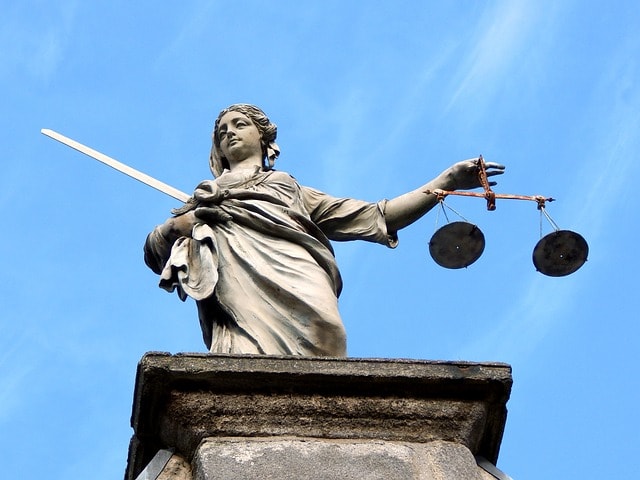
Image by Pixabay.
Leveling the playing field with David A. Neiman
Wallace Miller attorney David A. Neiman has been a proud supporter of NSLAC since getting involved in 2016. Joining shortly after the clinic was founded, he helped oversee its expansion and transition as chairman of the Board in 2019. “It was an honor to see a small legal aid clinic grow and blossom and I take great pride to have been affiliated with that organization at that time,” David says. “It’s my goal to level the playing field by giving everyone, regardless of their background, access to our judicial system in their time of need.” Hear more from David in his interview on our blog.
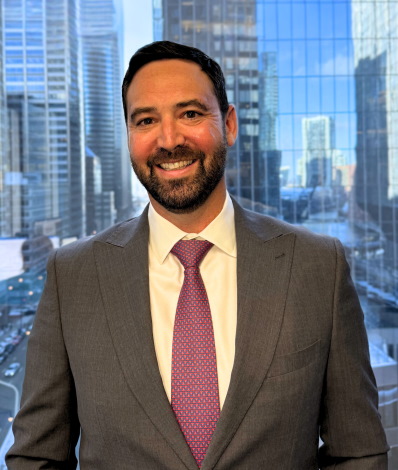
Partner David A. Neiman
Community involvement at Wallace Miller
Everyone at Wallace Miller, from attorneys and paralegals to our prelitigation department and administrators, is committed to fighting for justice for those wronged by corporations and flawed systems. That’s why we operate on a contingency fee model with no up-front fees—none of our clients pay anything for our representation unless we win their case through a verdict or settlement.
Our commitment to advocacy and expanding access to justice extends beyond the courtroom. This year, we’ve been proud to highlight and support our lawyers as they make a difference in our community. In addition to his contributions to NSLAC, David A. Neiman works extensively with Lambs Farm, an organization supporting adults with developmental difficulties. Wallace Miller partner Molly Condon Wells serves on the Board of Lawyers Lend-A-Hand to Youth, a nonprofit that connects at-risk youth in the Chicago area to tutoring assistance, and works with the Women’s Bar Association of Illinois to connect female lawyers with their peers in the law. Attorney Jessica A. Wieczorkiewicz is co-chair of the New Lawyers Division Education Committee for the Advocates Society, an association of Polish American attorneys that provides legal aid. And last September, our team turned out for Race Judicata, a 5K raising funds for Chicago Volunteer Legal Services.
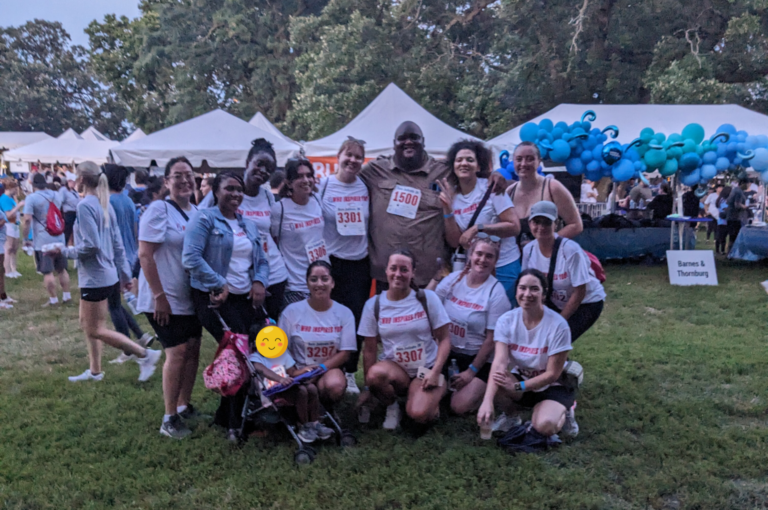
Wallace Miller at Race Judicata.
As plaintiffs’ advocates, we know how important it is to stand up for vulnerable individuals. On our cases and beyond, our team leverages the legal system to help people who need it and fights to improve the legal system so that it is available to everyone.
Searching for legal aid? Find out more about how to access free legal services through NSLAC.
Meet Attorney Rebecca Monen
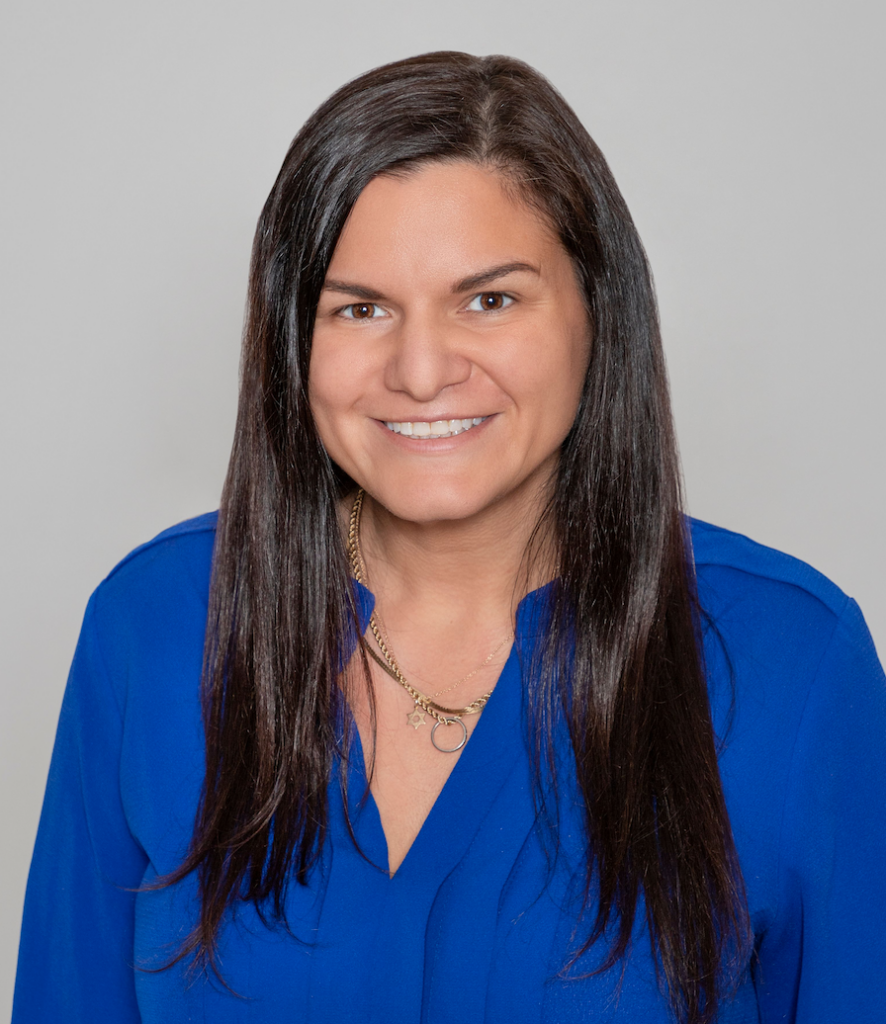
Attorney Rebecca Monen
Rebecca Monen joined the Wallace Miller team as a personal injury attorney in 2025. Before becoming a lawyer, she worked in the nonprofit sector for ten years with a focus on youth advocacy. From her nonprofit work to her law practice, Rebecca has dedicated her career to helping people seek justice and move forward from harm.
You initially worked in the nonprofit field. Tell me a little bit about that.
I went to college at IU in Indiana and then I moved to Boston for AmeriCorps, which is kind of like the domestic version of the Peace Corps. That’s how I got started working in nonprofits. I was doing what’s called development, which is fundraising and soliciting new donors and creating events and all of that stuff, as well as marketing communications.
I moved to Chicago in 2011 and worked in nonprofits up until I went to law school, mostly youth-based nonprofits. I focused my career on helping people, but after about a decade in the nonprofit field, I had reached a director-level position, and I felt like I could do more in another field.
I knew that whatever that different thing was, I still wanted to help people. I was a political science major and I’ve always been interested in history and politics. I always wanted to go to law school, but I never felt like that was for me—that was for other people. I don’t have attorneys in my family, I don’t come from “the right side of the tracks,” I didn’t know anything about the legal field. So for me, it always felt like something only other people could do.
But with a whole decade of professional experience behind me, I wasn’t intimidated the way I was when I was younger. I thought, “Well, why not me? I’m smart, I want to do good, I want to learn this, I want to get this degree. The only impediment is me. I want to do it, so let’s do it.” And now here we are.
What was it like making that transition?
It was hard and scary. You really uproot your life. I studied and took the LSAT and did the applications. Then because I was doing the part-time evening program, law school took me four years while also working full time. And then I had to study for the bar. So it was over half a decade for me between deciding I wanted to go to law school and becoming a lawyer.
I’m still young in my legal career, and I’m coming in and having to learn new things—which is exciting, but it’s also scary. With that said, I am glad I waited to go to law school until later. I was a much better student and I have a much better handle on things. And now with more than a decade of experience working with people who do need advocacy and support, I can bring that understanding into the way I want to be an attorney.
How does your previous work in nonprofits help in being a lawyer?
Because of my previous career, I’ve had the opportunity to interact with all different types of people. Working in fundraising meant that I had to communicate with board members and high-level donors, but I was also talking to the people who run the programs and going to their events, and hanging out with the kids we serve and learning how to talk to their parents, and then being able to switch and talk to the donors again about the experience. I learned different ways to communicate the same thing to different types of people and that’s been really useful.
Also, working in the nonprofit space, on any given day it’s pretty much always all hands on deck. Everyone’s doing a million different things at once. If we’re collecting supplies and someone says, “We just had a huge donation, we need everyone to help,” everyone goes and helps. It doesn’t matter what your level is in the hierarchy.
That not only helped me get really organized, but also put me in the mindset that we’re part of a team. I’m always willing to help out, even if it’s not part of my job description. Coming from that background, I’m very community minded. And I’m glad I’ve had other experiences outside of the legal field before jumping in.
What has been the most rewarding thing about being a lawyer so far?
Knowing that I can be a voice for individuals who probably don’t feel like they have a voice or that no one has their back. Something has happened to them and they deserve justice for that, and I can be the access to that justice. I can be the one that helps them.
If someone’s injured, you can’t ever take that back. Money doesn’t undo what happened. But what we’re trying to do is make sure everyone is able to get what they deserve. And if something bad has happened to them, they deserve to be seen and to be heard and to be represented. They deserve access to the care and treatment and flexibility they need to recover, which money makes possible.
Especially right now, I think there’s so many people who feel very hopeless and scared. As attorneys, we can be on the front lines of helping people and defending them. It’s very rewarding to know that our work is directly impacting people in a positive way.
Can you tell me about a time when you thought to yourself, this is making a difference?
I was working on a case a couple years ago of a client who was injured on a worksite. They were working on a train that was down in a tunnel and the train took off unauthorized, and they were on top of the train in the tunnel in the dark. They sustained some physical injuries but they also had a huge amount of emotional trauma.
We met with them and their spouse multiple times, and they were the most lovely people. They were such a good, hardworking family-oriented person. And this one incident almost destroyed all of that, because they’re hurt and can’t be on their feet that long and they have bad PTSD.
But we ended up being able to get their family a very substantive settlement. Obviously that doesn’t make up for their injuries, but it meant that they were set up financially and the children would be provided for. It meant they could take as much time as they needed to figure out their next career steps.
It’s an example of how sometimes really bad things happen to good people, and they need someone to help. You can’t correct the situation, but you can put them in the best position to move forward from it.
What would you say to someone considering reaching out about a personal injury case?
I would say, do it—there’s no reason not to. There are no upfront fees at our firm and consultation is always free. Worst case scenario, a case might not get picked up, but our team will always be happy to talk to you. Even if they can’t help, they can point you in another direction, to someone else who’s better suited for your case, or towards what your next steps might be.
I can understand how it would be intimidating for someone to reach out to an attorney. Maybe they have some shame related to their case, or they feel uncomfortable, or there are sensitive medical issues. But it’s kind of like going to the doctor—the doctor has seen it all. They don’t judge. Attorneys should be viewed in kind of the same way. We really are here to help. We’re here to listen. It’s our job.
Learn more about Rebecca at her full bio page.
Meet Partner David A. Neiman
David A. Neiman joined the Wallace Miller team as a partner in December 2024. Focusing on mass tort and class action litigation, he works to make sure that everyone has fair opportunities and equal access to justice. He is currently serving on the Plaintiffs’ Steering Committee for federal hair relaxer litigation and on the Plaintiffs’ Executive Committee for the parallel state court hair relaxer litigation in Cook County, Illinois.

Partner David A. Neiman
What was your path to working in law?
The decision to concentrate my practice in personal injury and consumer protection law has been driven by a desire to help and do something that will better my community. Starting in high school, I was active in charitable organizations, volunteering both during and after school with my classmates that had developmental disabilities. That led to involvement with a wonderful organization called Lambs Farm, a non-profit organization dedicated to helping people with developmental disabilities lead productive, happy lives.
My legal work is driven by the same desire. I’ve been very fortunate in my life, but I realize that not everyone has had the same opportunities. And so it’s my goal to level the playing fields by giving everyone, regardless of their background, access to our judicial system in their time of need.
How do you seek justice in personal injury, mass torts, and class actions?
Oftentimes we get introduced to clients who are at a low point in their life. Almost always it’s a situation that’s beyond their control, and almost always it’s a situation where, whether or not people like to ask for help, it is needed.
And although we can only provide a limited scope of help—explaining the legal process and navigating the murky waters of a lawsuit—we’re able to try to bring some clarity to their pending legal action and, in the end, hopefully make the future a little bit more promising for them and their loved ones.
You have a strong background in the legal field. What has surprised you over the course of your career? What do you think people misunderstand about the law?
Lawyers don’t always have the best reputation. Sometimes because of how they’re portrayed in the media, other times because of successful efforts of tort reform advocates.
But truth be told, the peers that I have been fortunate enough to work with, including those here at Wallace Miller—we really do care about the people that we represent, and the advocacy that we provide to our clients is sincere and real. It’s based on a real legitimate interest in helping our community and our clients. We want to benefit everybody who’s been impacted by the preventable injuries sustained as a result of someone else’s negligence or intentional conduct.
Are there specific moments in your work when you feel like you’re making a difference?
To me, justice is not always success in a courtroom. It’s providing the understanding to a client that through our collective efforts, we’re creating a safer and better world for everybody. With some of my clients, not only have we had success in court, but we’ve seen success in the state legislature, passing laws that protect people. And you can see, through the efforts and through the hardships that people have experienced, there’s been a tangible outcome that’s making our community a safer place.
In your experience, what makes a good plaintiffs’ lawyer?
There are a lot of typical answers. I think that a good lawyer can have a variety of different attributes, and I don’t think that it’s ever one person that makes or breaks a case. It’s a team of lawyers with a variety of different personalities and skillsets that move the case forward.
Throughout my career, one thing I’ve learned is the importance of a team approach. Anybody who thinks that they can singlehandedly take on some of the biggest companies in the world and defeat them—that’s someone with a huge ego. And if that’s not in check, it can be dangerous. The types of cases that we work on require a variety of different skills, and I don’t think it’s possible for one person to possess them all. And so, in order to be successful, you have to realize your strengths and your weaknesses and put together a team that allows people to work together to provide the best quality service to the clients that we have the honor to represent.
You’re currently working on the Plaintiffs’ Steering Committee for the hair relaxer litigation. Tell me a little bit more about that role.
For the hair relaxer case, we’re working in two parallel proceedings. With the sheer size and scope of the multidistrict litigation in federal court, the courts have consolidated matters before a single judge and selected a smaller group of lawyers to do work that all plaintiffs can benefit from.
I was honored to have been appointed to the Plaintiffs’ Steering Committee and the Marketing Committee for the federal lawsuit, which means I am one of the lawyers who gets to get their hands dirty and do some of the work that benefits the greater group as we move through the litigation.
I’m also on the Plaintiffs’ Executive Committee for the litigation in Cook County, Illinois. In that capacity, I’m often involved in handling communications with the court and with the defendants, and I’m doing a lot of broad administrative work that’s getting us ready through the litigation process and hopefully at some point ready for trial.
The end goal is to get a just resolution for our clients. The shared experience of being appointed to leadership in both state and federal court has been really rewarding—I feel like a pivotal part of the process as we get these cases through the system.
You joined Wallace Miller as a partner a few months ago. What made you want to work at the firm?
One of the things I mentioned before about what makes a good lawyer is teamwork and a team approach. I was honored to have the opportunity to work with Edward Wallace, Mark Miller, and Molly Condon Wells on the hair relaxer litigation, and what really impressed me was the way that the firm approaches these cases. I think that my personality and skillset match up with those lawyers particularly well.
In addition to that, I had the pleasure of meeting other firm lawyers through our joint efforts in legal organizations including the American Association for Justice. After working with all the impressive lawyers and staff at the firm, I’ve come to really appreciate their views, their perspectives, and the way that they approach their cases. Joining the firm was a great opportunity for me. And so, when the opportunity was presented, I jumped at it.
What do you do outside of work that informs your career?
Charitable work and volunteering are things that I’ve been interested in for a long time. As I said before, I’m very proud of where I came from. Both of my parents are business owners, they’re independently successful, and they provided me with a number of opportunities. I was very fortunate to be in a position where I could succeed in high school, get a college education, and then go to law school. And I had really good role models and people who guided me through that process.
I am very aware that not all people have had the same opportunities as me, and I feel that it’s my job to do what I can to level the playing field. This motivated me to join a legal aid clinic early on in my career that had just started in Highland Park. Years later, I became Chairman of the Board of that organization. It was an honor to see a small legal aid clinic grow and blossom and I take great pride to have been affiliated with that organization.
Most recently, I’ve been involved with Lambs Farm. Lambs Farm is a campus for developmentally disabled adults that provides housing, recreation, employment opportunities both on and outside the campus. It’s a really great organization that’s been around for a very long time, and I want to make sure it stays around for a very long time.
As a lawyer, you’re only as good as your willingness to learn and improve. So, in addition to charitable work, I make sure that I’m involved in legal organizations that help me to continue to do the work for my clients at a high level. With that in mind, my work for the Illinois Trial Lawyers Association (ITLA) and the American Association for Justice (AAJ) is really meaningful to me as well. Aside from providing myself and other lawyers with educational opportunities, these two organizations do a ton of lobbying on the state and federal level. There are always forces outside of our control that try to enact legislation that would inhibit our ability to protect our clients and retain the right to trial by jury. So, I’m really proud of the work that I do for those organizations, because I really do think it’s impactful and makes a tangible difference to how we function as a society and as a business in the practice of law.
Learn more about David on his bio page. Interested in working with Lambs Farm? Find out more on their website.
Meet Attorney Kathleen B. McGivney
Attorney Kathleen B. McGivney joined the mass tort and personal injury teams at Wallace Miller in 2024. Through plaintiffs’ litigation, she works to make sure that individuals harmed by the actions of others get a chance to tell their stories and fight for compensation. She currently works on the hair relaxer, paraquat, and Suboxone litigations.
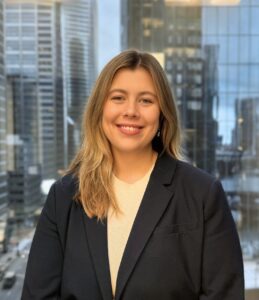
Attorney Kathleen B. McGivney
What made you want to be a lawyer?
I always knew that I wanted to be a lawyer. I don’t think I ever wanted to be anything else, you know, a journalist or a detective—I come from a family of lawyers, and specifically the women in my family inspired me to want to become a lawyer.
My mom, who grew up in Chicago, was the first person in her family to go to law school, which inspired other family members to go as well. It was notable that she not only got her college degree, but also decided to go onto law school and try to break into this field that was pretty much dominated by men at the time.
I’ve always admired my mother’s work ethic in addition to her ability to raise two daughters—she knew what she wanted to do, and she did it. And I found that to be a helpful path, to follow in her footsteps.
Was your experience during law school different from your mother’s experience?
They were totally different. Both of my parents obviously encouraged my sister and me to work hard, but now on a societal level, women are encouraged to go and conquer the world. And back when my mom was on the same path, many women didn’t even go onto college. It just wasn’t encouraged at the time. And so she and other women like her really cleared the path for younger women like me to make it and enter the field.
She does a different kind of work than me, she’s an attorney for the state government. But she gets it and often has good advice for me about how to handle certain day-to-day issues that come up in the field.
How did you end up working in mass torts and personal injury?
In law school, the firm I worked at specialized in personal injury and medical malpractice. I got a taste not only for litigation and big cases and trials, but for plaintiffs’ work specifically. I really enjoyed the fast-paced nature of it, and I loved the people I worked with.
I got to assist with a few trials, and I liked the thrill of things changing at the last minute, or the judge having a set understanding of the law and having to change their mind. And the outcome was positive in those trials, so we were able to help people get justice for themselves and their family after something terrible had happened to them. It’s fulfilling to be able to help provide that sense of closure.
I always knew I wanted to be a lawyer, but that solidified for me that I wanted to go into litigation and be in the courtroom.
Why do you think mass tort and personal injury is important?
Sometimes when bad things happen to people, it’s not necessarily anyone’s fault. But when it is, it’s important for us as a society to help the people harmed to get compensation and have their case heard in court. It’s important for people to be able to tell their story.
It’s a very good part of America—the strength of our justice system, specifically our civil justice system. In a lot of cases, the best way you can hold companies and powerful people and organizations accountable is by fighting for financial consequences.
How do you stay motivated when working on difficult cases?
It’s important to have a sense of perseverance and moving things forward. As lawyers, we can’t prevent the things that happen to people—we respond after the fact, after the terrible thing has already happened. And that can be heavy at times, but it’s important to remember that we need to keep moving forward. We need to see what we can do for these people now. And that’s the goal, at the end of the day—to keep moving things forward for our clients and their families.
To find out more about Kathleen, check out her full bio page here.
Meet Attorney Julia Ozello
Julia Ozello joined the Wallace Miller team as an attorney in 2024. She focuses on consumer protection, antitrust, and class action litigation and is currently working on the Blue Cross Blue Shield, Subaru, Fair Labor Standards Act (FLSA), and Ford transmission cases.
What was your path to practicing law?
“I went to Case Western for law school, mainly for their international law program. That was the intent at the time—but Covid changed things.
My favorite classes weren’t necessarily lecture based classes—I enjoyed the International Law Lab and the Death Penalty Lab. The labs at Case Western are basically practical writing seminars. An outside source comes to the professor and asks for a memo or a brief, and the professor gives the project to one of their students. Those are the classes that stick out for me- they were very useful experiences in terms of working for an attorney while in school, as well as writing.
I graduated in May of 2020. Normally you would take the bar in July, but because of Covid I couldn’t take it until October, and the admission ceremony did not take place until 2021.
Soon after I was admitted to the bar, I ended up getting a job at a nonprofit doing consumer protection work. I was initially hired to work on mortgage and foreclosure issues, but I ended up working heavily on the new (at the time) Early Resolution Program to assist pro bono litigants in defending themselves against debt collectors. Through that process, I often interacted with the court systems and worked with clients to defend and settle their cases. That was a good fit for me and eventually I moved to a consumer protection law firm to do similar work.
I’ve been doing various types of consumer protection since law school. I mainly worked in criminal defense during law school because I found it really interesting and you see how much it matters, similar to the type of work we do here. But being a criminal lawyer is incredibly hard, both mentally and physically. This is different work, but it’s been a relatively smooth transition. And it worked in that I was able to find something that is both interesting and fulfilling.
What does consumer protection mean?
Basically, if you have an issue with any product, or a product is not performing the way you thought it would, you may have a claim against the manufacturer or seller. It could be cars, it could be solar panels, it could be something you bought at the 99-cent store. It could be related to price fixing, someone changing the prices on you, or someone charging you more than they should be. It’s a really broad area of law.
You mentioned the 99-cent store. Why does litigating issues with such small amounts of money matter?
The defense side brings this up a lot, because there are many statutes where the consumer doesn’t need to have actually paid any money to have some kind of claim. Ultimately, a valid claim is a valid claim. You’re holding companies accountable, even for things that feel small.
For a lot of consumer protection statutes, that’s a big part of the intent behind them. It’s meant to be a deterrent or to protect consumers in some way, such as advertising and marketing regulations. But it’s basically lawsuits like these that protect people from fraud or abuse by anyone who may be trying to take advantage of consumers, whether they’re salespeople, merchants, and manufacturers.
Tell me more about how that works in practice.
In terms of class actions, there’s a lot of stuff that might not seem like a big deal. For example, within the past few years, there was a case against Walmart about misrepresenting the price of items. As in, you check the price on the shelf and it says three dollars, and then you go to the checkout and scan the item, and it actually says four dollars.
That might not seem like an issue to the average person, but while each violation might not have a large impact, it does add up—for both the consumer and for the company’s profits. Under Illinois consumer fraud law, it’s illegal to have deceptive pricing practices. What Walmart did was illegal, and it adds up.
There are a lot of nuanced laws out there that apply to things that might not seem like an issue to a normal person. So, if you encounter something unfair, even if it seems weird or small—if it stands out as a little odd, I would talk to a lawyer about it. Attorneys who work on a contingency fee will look into your case free of charge, so there’s no harm in talking to them.
What aspects of consumer protection practice do you enjoy most?
I like briefing and I like doing discovery. Briefs are a way of analyzing the other side’s argument—figuring out what they said wrong and what your counterarguments are going to be. That means analyzing their brief, deciding which points you need to address and which ones you don’t, and then figuring out your counterarguments and doing the research to back it up. I like doing that research—of course, it becomes much more stressful when it’s on a deadline, but I like learning new things and crafting arguments.
That’s where discovery comes in. For discovery, you’re getting into the meat of a case—actually figuring out what’s going on and seeing how that works. You’re really finding out what happened and finding out if you have a good argument.
Discovery and briefing are usually the most expensive parts of litigation, the most time consuming, et cetera. But you get to be your own investigative detective.
After law school and your experience at a nonprofit, why did you decide to work in this field?
Working in the area of consumer protection, it feels like you’re helping people a lot of the time, especially on the plaintiff’s side. That’s a big part of it—I feel like I’m having a positive impact on people. I feel like I’m making a difference.
And it feels good to sue larger institutions that have caused harm. If you’re someone who likes to stick it to the man, for lack of a better term, that can feel very rewarding—it feels like you’re doing something worthwhile.
How do you stay motivated when a case does get difficult?
Ideally you have a case that, even when things are tough, you still have a good argument. If you’ve been doing your due diligence and keeping up with everything, you’re able to counter the defense’s arguments. You can also get support from your colleagues and from senior attorneys at the firm, and that’s helpful.
And in any case, you want to keep in mind that justice looks different for each client. You have to listen to your clients’ needs and find out what the best outcome is for them. Sometimes that’s a court case. Sometimes that’s a change in the company’s policies. Sometimes that’s a settlement. That’s also a victory, if it works for your client.
To learn more about Julia, check out her full bio here.
CBA Names Matthew J. Goldstein as Chair of the Class Action Committee
Reviewed by Matthew J. Goldstein, Esq.
We are excited to announce that Wallace Miller attorney Matthew J. Goldstein has been named chair of the Chicago Bar Association (CBA) Class Action Committee for the 2024-2025 year. Matt will host his first meeting as chair on November 6, 2024 at the Wallace Miller offices.
The Chicago Bar Association’s committees form the core of its legal, educational, and advocacy work. During his yearlong tenure, Matt will help bring together Chicago-area attorneys to discuss the latest in class action procedures, share strategies and best practices, advance legal education, and connect with esteemed professionals in the field.
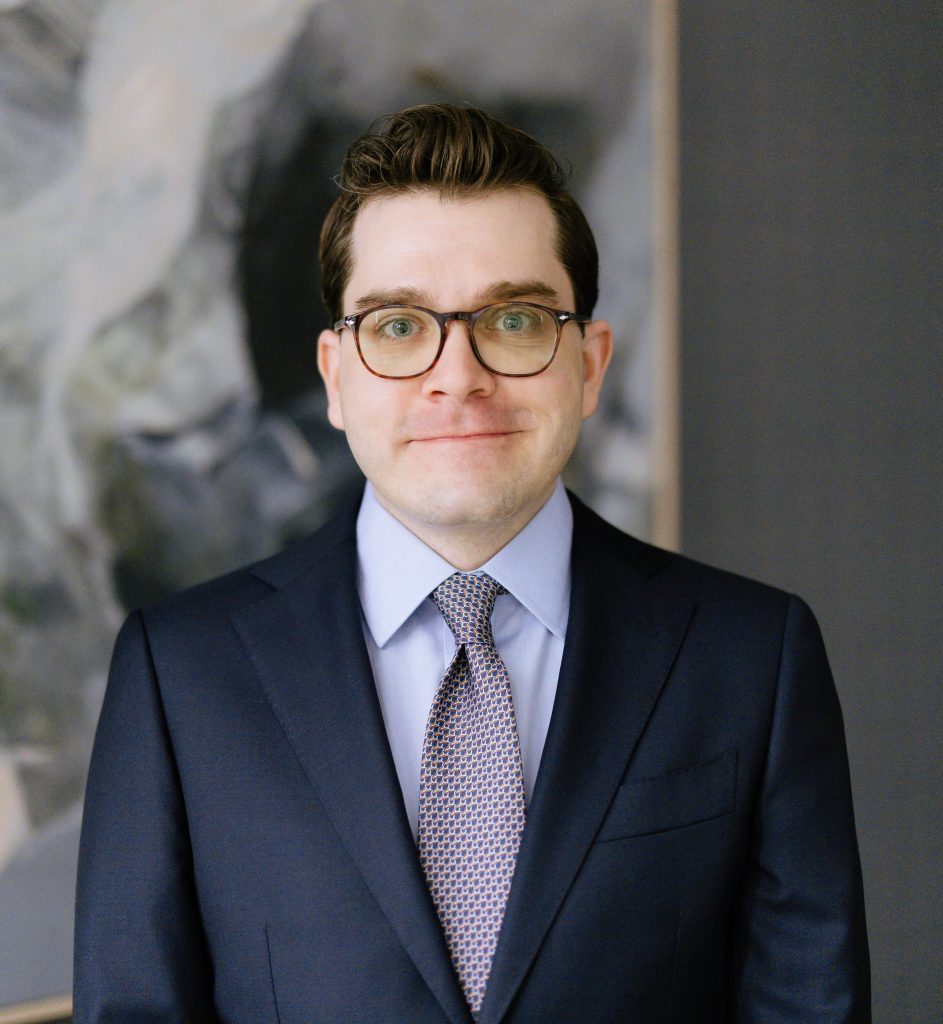
Attorney Matthew J. Goldstein was named chair of the Class Action Committee.
What is the Chicago Bar Association?
Currently celebrating its 150th year, the Chicago Bar Association is one of the oldest and most active bar associations in the U.S. The CBA has more than 17,000 members including lawyers, judges, law students, and professionals from Cook County and Illinois as well as representatives of law firms from across the country.
Bar associations are location-based groups of lawyers founded to improve the administration of justice, provide legal education to lawyers and to the general public, and connect legal professionals with their colleagues. As one of the most respected bar associations in the country, the CBA makes a major impact on the practice and knowledge of law in Illinois and beyond.
The Chicago Bar Association offers a variety of programming, including:
- Sponsoring education programs to expand public knowledge of the legal and constitutional system.
- Partnering with the Chicago Bar Foundation and Lawyers Lend-A-Hand to provide high-quality, affordable legal services.
- Working to make the bar more racially and ethnically reflective of the city of Chicago.
- Providing continuing legal education (CLE) programs, as well as facilities and services for members.
- Mentoring law students and young lawyers through the Young Lawyers Section.
- Providing public legal services like the monthly Law at the Library events, which offer free, virtual legal advice in partnership with the Chicago Public Library and Evanston Public Library.
The CBA’s Practice Area Committees offer education and insight in specific legal areas, from employee benefits to antitrust law. In September 2024, the CBA tapped attorney Matthew J. Goldstein to serve as the chair of the Class Action Committee for a one-year term.
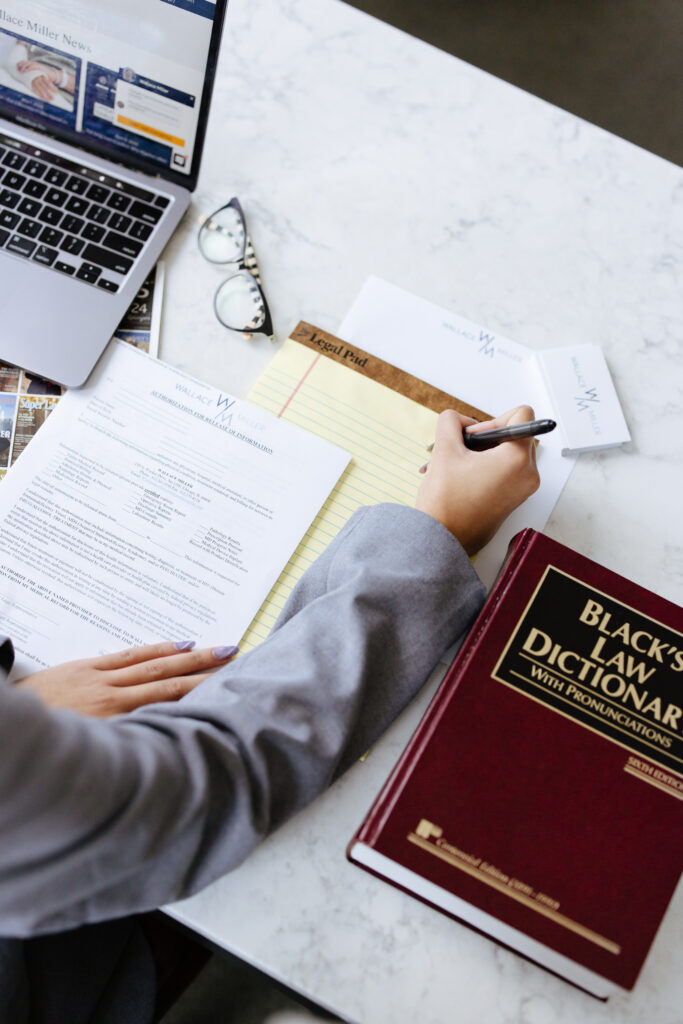
Matthew J. Goldstein appointed chair of the CBA’s Class Action Committee
Matthew J. Goldstein fights tirelessly for his clients and to change the law for the better. His practice focuses on class action litigation and consumer protection law and he has represented clients in a range of complex disputes in state and federal courts, including a recent appeal before the U.S. Court of Appeals for the Seventh Circuit. Matthew is admitted to practice in Illinois, before the Court of Appeals for the Seventh Circuit, and in United States District Court for the Northern, Central, and Southern Districts of Illinois, Northern and Southern Districts of Indiana, Eastern District of Missouri, Western District of Wisconsin, and Southern District of Texas.
Matthew believes in the power of class actions to make a positive difference, both for individual clients and for the justice system as a whole. “Litigation like we do here, going after these companies, is one way to hold these bad actors accountable and keep them in check,” Matt says.
As the chair of the Class Action Committee for the 2024-2025 year, Matt will help build engagement between lawyers and those outside of the legal field. He will organize the CBA’s class action programming and its continuing education for members and continue to develop the association’s role within the justice system.

The role of the Chicago Bar Association Class Action Committee
Of the 17,000 members of the CBA, 5,000 belong to one or more of the 100-plus committees organized by the association. The work of these committees is at the core of the CBA’s mission of engagement, education, and communication.
The Class Action Committee connects lawyers working on class action lawsuits, improves education in the field, and advances policies that benefit clients and the legal system at large. As chair, Matt will work to build engagement, organize meaningful speakers on relevant topics, communicate with members, and encourage and represent diversity.
This is an exciting position at one of the foremost bar associations in the country, and we hope you’ll join us in congratulating Matt on his appointment. We look forward to continuing to connect with clients and the legal community over the course of his tenure with the CBA.
Learn more about Matthew J. Goldstein and listen to his interview with WGN’s Let’s Get Legal.
Looking for legal advice? Check out the resources available at the Chicago Bar Association website or contact Wallace Miller at (312) 261-6193 to discuss your situation free of charge.
Meet Jessica Wieczorkiewicz
Jessica Wieczorkiewicz is an attorney at Wallace Miller working in mass torts, product liability, and personal injury litigation. She was recently appointed to the Plaintiffs’ Steering Committee in the Suboxone litigation.
What made you decide to work in mass torts and personal injury?
In the mass tort practice area, you can make a difference in the world on a large scale. We work on holding large corporations accountable when their actions harm everyday people—the ability to make an impact on the entire country is amazing.
Many companies are so profitable from product sales that sometimes even when they have to resolve a case—by spending money on litigation, a settlement, or jury verdict—it doesn’t deter them from putting profits over people.
That’s why the work we do is so important. Hopefully we can get to a point one day where companies act reasonably to begin with and put in the time to ensure their products are as safe as they possibly can be. Plaintiffs’ trial lawyers are at the heart of protecting consumers’ rights and I am proud to be a part of that effort.
What’s your favorite part of working in law?
One of my favorite parts of this career is the client contact—connecting with and supporting people who need help. We spend a lot of time investigating and gathering evidence on the defendant company, so when I get the opportunity to learn about a client’s experience, it’s always a reminder of why the work that we do is so important. Hearing the story of a specific client and how their life has been impacted by an unsafe product really motivates you to come back and do this work every single day.
You’ve worked extensively with the Polish-American community in Chicago. Tell me more about that.
I’m a member of the Advocates Society, which is an association of Polish-American lawyers. Our goal is to help the Polish community in the Chicagoland area. A lot of the work that the Advocates Society does speaks to a common theme within many immigrant communities—people are not always aware that they have legal rights when something goes wrong, whether that involves a product, a medical professional, or other circumstances. I’m passionate about making sure that everybody in the U.S. knows their rights, especially when it comes to consumer products. If a company is going to get the privilege of making a lot of money from a product they sell, they should be held to a reasonable standard of ensuring that their product is safe.
I’ve found in my work that many times, people don’t realize that they might have a lawsuit they can pursue. I really enjoy being a bridge to help educate on that aspect, especially when there are language barriers involved.
Congratulations on the Suboxone leadership position! Tell us more about that case.
I’m especially proud of this leadership appointment because this litigation is so important—it goes to the heart of the opioid epidemic that was largely created by “big pharma.” One of my main career goals is to hold these companies accountable when they do not act reasonably and in the interest of the common good.
Like everyone in this world, big pharma has to face the consequences of their actions, and I’m working one day at a time to ensure that happens. And being appointed to leadership in this case allows me to do just that—substantively work up the case on behalf of clients across the entire country.
In this Suboxone litigation, we have many clients who were hooked on opioids because of big pharma’s conduct. You have individuals who were leading normal, healthy lives, and then when something happened that required some form of pain relief and they consulted their doctor about it, they got a prescription for painkillers that were basically legal heroin.
Suboxone comes into play as an opioid dependency treatment—to help people wean off opioid addiction and use. However, the Suboxone film has been linked to significant dental damage due to how acidic the product is and the way in which it’s used.
What about the Paraquat litigation?
Most products on the market aren’t 100% safe, but consumers deserve to be warned about known risks and informed of the safest manner of use so they can decide whether or not to use that product. In the Paraquat litigation, which centers on a pesticide used mainly in agriculture, we have reason to believe that the manufacturers knew that their product could be linked to Parkinson’s disease. As a result, we have many individuals who now suffer severe injuries that could possibly have been avoided had the manufacturers been more forthcoming about the known dangers and provided better warnings and instructions for use. It’s upsetting to see a company sell a product while ignoring the adverse impacts it can have on people’s health.
What advice would you give to clients?
Perform your own due diligence when deciding what firm or attorney to work with on your case. Pay attention to who has leadership positions in mass tort litigations. The firms in leadership are the ones that strategize on how to handle the litigation and perform the substantive work in the case—from reviewing documents and taking depositions to working with experts and developing the legal theories of the case.
Our partners have been doing this leadership work for over 20 years, and our firm has earned a reputation. Defendants and their counsel know who they are dealing with—trial lawyers who know the law, the science, and the damages and will fight for their clients to obtain justice.
To learn more about Jessica, check out her full bio here.
To hear Jessica discuss her work on the Suboxone litigation, listen to her interview on the Cases 4 Causes podcast here.
Meet Molly Condon Wells
Molly Condon Wells is the first female partner at Wallace Miller. In addition to being court-appointed to leadership in two multidistrict litigations in 2023, Molly works on mass tort cases and the BCBS class action and represents plaintiffs in sexual abuse cases.
What do you find to be the most rewarding element of practicing law?
Actually being able to make connections with clients and knowing that what you’re doing is making a positive impact on their life. For many people, they’re dealing with the worst thing that’s ever happened to them. And to be able to give them some sort of closure or resolution is truly the best part of this job—when you have a client that’s genuinely happy and knows that you did what you could to resolve their issue.
Over your career, what has surprised you about working in law?
Something that I’ve come to find—and I say this a lot to people that I mentor—is that progressing in your legal career is like being in a video game, where you keep mastering different levels. Studying for the LSAT, your first year of law school, taking the bar exam all feel like the hardest thing you’ve ever done. And then you start your career as an associate and you’re like, this is even harder than law school and I’m learning all these things I didn’t know.
The practice of law is constantly evolving and requires unwavering dedication to knowing that there’s always going to be challenges. But assuming that you’re willing to always be learning and to teach yourself how to overcome challenges, it can be a very rewarding career.
How do you approach talking to clients who have gone through difficult experiences?
It’s really important to be willing to listen. Often this is the first time people have really talked to somebody about what’s happened to them, and they just want a safe space to explain what they’re going through. It’s important to have an open mind and listen to people.
There are a lot of firms where partner-level attorneys won’t be the first person to talk to a client. I want to talk to people one-on-one. It’s important for me to understand the case and understand their story in order to effectively represent them.
How do you navigate the process with clients who might not have any prior knowledge of complex litigation?
Really what we do, especially on the mass tort side, is very similar to individual personal injury products liability claims. It just so happens that they’re consolidated with a bunch of other cases to make it easier for the common legal and factual issues to be litigated. We still need to do the same type of investigation for each client. We still have to collect your medical records, understand the underlying issues, and answer discovery. There are complex scientific and legal aspects of the case we have to tackle. The biggest difference is that there are also a lot of other parties involved in the process before it can be resolved, so it requires a lot of patience.
What is it like working with lawyers across the country on these big cases?
Every litigation does it differently, but typically the court appoints who’s on leadership and who works on a case. Last year, I got two leadership appointments back-to-back, which doesn’t often happen. I was appointed as Liaison Counsel in the Tepezza MDL and to the Leadership Development Committee in the Hair Relaxer MDL.
One of my favorite things about working on mass tort and class action cases is that you have the opportunity to collaborate with some of the best attorneys all over the country. I learn a lot from seeing how other people approach issues in a courtroom.
I believe the best way to be a good litigator is to go watch other good litigators. To have the opportunity to see how everyone across the country works, people at the top of their game, is an invaluable experience for anyone at any point in their career, because, again, the practice of law is a continual learning experience.
What other elements have shaped your career up to this point?
Relatively speaking, I’m still early in my career, and I am the only woman partner at the firm. I have encountered both opportunities and challenges because of that, but I have always focused on the wonderful opportunities given to me to help me succeed. When I became a mom, it motivated me to show as the best version of myself both as a lawyer and for my family. Being a working mom is harder than I imagined, but a huge reason why I’ve been able to succeed is that Wallace Miller is a supportive firm and has given me the flexibility to tackle what I need to at home and at the office.
What active cases are you working on?
Hair relaxer is still in the beginning stages—it’s only been a multidistrict litigation (MDL) for the last year. There’s a large team of lawyers from all over the country that are working to move it forward and get the discovery and documents we need. There are other mass torts that I am working on as well—the Paragard IUD MDL in the Northern District of Georgia; the TDF litigation in San Fransisco, California, which concerns HIV medications manufactured by Gilead; and the Tepezza MDL here in the Northern District of Illinois. I’m also working on the Blue Cross Blue Shield class action litigation.
I work on a lot of sexual abuse cases, which I find to be incredibly fulfilling and rewarding work. It is astonishing how many people are impacted by sexual abuse—it happens everywhere from classrooms to the backseat of an Uber. In talking to clients, it’s hard to wrap my head around how pervasive it is and how much victims suffer. I think all the work we do here is important, but this especially is an area that I feel connected to and can see a real difference helping my clients.
To learn more about Molly, check out her full bio here.
To learn more about her work on sexual abuse cases, including rideshare cases against Uber and Lyft, click here.
Understanding What We Do: What Is Plaintiff Litigation & Why Is It Important?
What is litigation?
In legal terms, litigation is resolving disputes via the public court system. Any legal proceeding—whether that is a criminal lawsuit, a civil lawsuit, or a bankruptcy case—is a type of litigation.
Although often used interchangeably, litigation is not the same as a lawsuit. The term litigation refers to resolving disputes via the legal system, while a lawsuit is the specific legal action brought by a plaintiff against a defendant. For example, in the context of mass torts, each individual plaintiff has their own lawsuit. But each lawsuit is part of a larger litigation about the same alleged defective product or wrongful conduct.
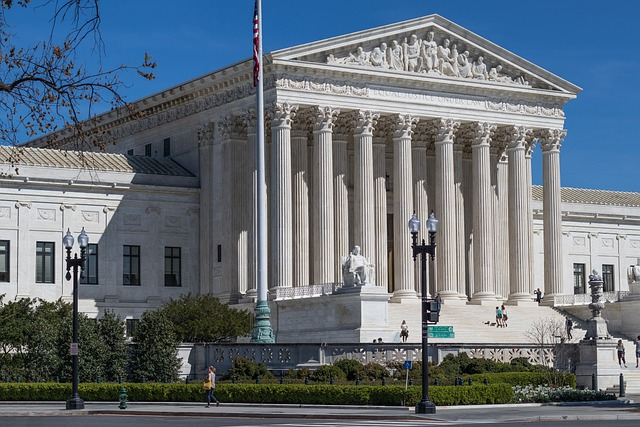
The U.S. Supreme Court building in Washington, DC. Photograph by Pixabay.
The U.S. court system is divided into federal and state courts. Federal courts, which include the Supreme Court, the courts of appeals, and the District Courts, oversee cases concerning federal law, disputes between states, constitutionality, bankruptcy, and other country-level concerns.
While the setup of state courts depends on the state, they generally include a state supreme or high court, a court of appeals, and a variety of trial courts. They oversee suits, including most criminal cases, tort or personal injury cases, family law cases, and cases involving state laws or constitutions.
In the State of Illinois, most cases begin in the 25 judicial circuits (also known as trial courts) across the state. Appeal cases proceed to the Appellate Court, which is divided into five districts. The Illinois Supreme Court, which consists of seven justices, provides the final judgment on state law. Look up the organization of your state’s court system here.

The U.S. District Court for the Northern District of Illinois is the third-largest district court in the country. Photograph by Carol Highsmith, U.S. States District Court website.
Understanding legal terms
Both criminal and civil cases involve a plaintiff (or suing party) and a defendant (or party responding to the complaint). In a civil case, the plaintiff is the person filing the lawsuit, while the defendant is the party against whom the suit is filed. Plaintiffs bring lawsuits in civil court because they believe they have been harmed by the defendant physically, financially, or otherwise.
Defendants can be business interests, individuals, hospitals, insurance companies, nonprofits, or government organizations. In some cases, many plaintiffs claim that the same defendant or group has harmed them. Cases like these may be filed via a class action lawsuit or consolidated into a mass tort.
Criminal Cases

Photograph by Pixabay.
Criminal cases operate differently from civil cases in several ways. The plaintiff in a criminal case is the State representing the victim (often called “The People” in official documents). At the same time, the defendant is the person or organization being accused of a crime.
Civil and criminal cases also differ in how they handle the burden of proof, how much evidence is required to prove wrongdoing, and who is responsible for providing it. In a criminal case, the State must prove beyond a reasonable doubt that the defendant committed what they are being accused of. In a civil lawsuit, on the other hand, the plaintiff and the plaintiff’s lawyer must provide a preponderance of evidence—meaning showing that something is more likely true than it is not true—to prove that the defendant is at fault. This usually means it is easier to meet the burden of proof in a civil case.
Why is the plaintiff important in the law process?
Under our legal system, individuals can seek compensation for damages. These damages may include physical harm, medical expenses, loss of wages, or emotional distress, and lawsuits can also be filed for people who died due to harmful actions.
Plaintiffs sue for financial compensation, but that’s not all there is to it. Many plaintiffs file claims not only to be compensated for the wrong done against them but also to find answers and prevent the same thing from happening to others.
At Wallace Miller, we understand that there is more than money at stake in these cases. When someone suffers harm due to fraud or negligence, they often feel ignored, disrespected, or erased. Through the legal process, our attorneys can help plaintiffs pursue justice, achieve some measure of recompense, and prevent the harm from happening again.
What is a plaintiff’s attorney?
A plaintiff’s attorney, or plaintiff’s lawyer, is simply the individual representing the plaintiff. However, the term is commonly used to refer to an attorney who specializes in representing plaintiffs’ claims against larger interests such as insurance companies, corporations, or hospitals.

Photograph by Pixabay.
Wallace Miller focuses on this area of the law to make a positive difference in the lives of those who have been wronged. By taking on cases in consumer protection, product liability, employment, environmental and toxic harm, and personal injury, we protect the rights of victims of negligence, fraud, and other wrongdoing.
The defense attorney or the individual representing the party being sued is on the other side of the lawsuit. The term is also often used for lawyers who specialize in representing defendants. Large companies may have a team of defense attorneys on staff responsible for handling suits brought against them.
How do plaintiff’s attorneys get paid?
Because they are bringing the suit, plaintiffs and plaintiffs’ attorneys are the active parties in beginning a claim. Depending on the nature of the case, plaintiff lawyers are often paid via a contingency model, meaning they don’t charge their clients anything during the legal process. In these circumstances, the attorneys initially pay out-of-pocket all necessary litigation expenses—including travel expenses for deposition, expert reviews and analyses, testimonies, documentation, records, and court filing fees. Then, if a settlement or verdict is awarded, the attorneys are reimbursed for those expenses and receive a percentage of the award amount as their fee. If a plaintiff doesn’t receive compensation, the attorney doesn’t get paid, and they do not get reimbursed for the expenses they paid out-of-pocket on the case.
This means that the plaintiff’s attorneys take a financial risk in filing lawsuits. Experienced attorneys are experts at assessing the risk of a given claim and can help the plaintiff understand the situation accurately. Still, there is never a guarantee of a positive case outcome. This system allows average people to access the justice system without paying expensive attorney fees upfront.
What is the role of a plaintiff lawyer?
In a civil case, the plaintiffs’ lawyers are responsible for representing the plaintiff(s) and fighting for justice on their behalf. Their end goal is to help the plaintiff receive compensation for damages caused by the defendant(s).
During this process, they research the plaintiffs’ specific situation and the case in general. They build plaintiff files, gather and present convincing evidence, retain expert witnesses, and prepare documents for the court.

Photograph by Pixabay.
Many cases settle out of court, and in these situations, the lawyer’s goal is to achieve the best compensation possible for their clients. The plaintiff’s lawyer may represent the individual in court if a complaint goes to trial before a judge and jury.
On a societal level, plaintiffs’ lawyers can also use their skills to hold powerful parties accountable. When the actions of a person, corporation, nonprofit, or government organization cause harm to a large number of people, plaintiffs’ attorneys may represent them in a class action or a mass tort. This not only allows the people harmed to receive some compensation but also discourages these organizations from committing the same harmful actions in the future.
Wallace Miller: Your plaintiff lawyers
We know that you have many options when considering a legal claim. Our passionate attorneys and professionals have dedicated their careers to pursuing challenging cases and fighting on behalf of consumers, individuals, classes of people, and small businesses against some of the largest companies in the world.

Left to right: Nicholas P. Kelly, Edward A. Wallace, Molly Condon Wells, Mark R. Miller, Jessica Wieczorkiewicz, Timothy E. Jackson.
The attorneys at Wallace Miller have more than 75 years of cumulative experience in the law and have won millions in recovery and settlements. Our firm is nationally recognized, and we are frequently appointed by federal and state courts to serve in leadership positions. Most importantly, we are committed to obtaining justice for each and every one of our clients.
If you think you may have a claim against a business, corporation, organization, or any other group or would like to discuss your options, reach out to our firm today at (312) 261-6193 or fill out our online questionnaire for a free and confidential assessment in minutes.
Related Posts

